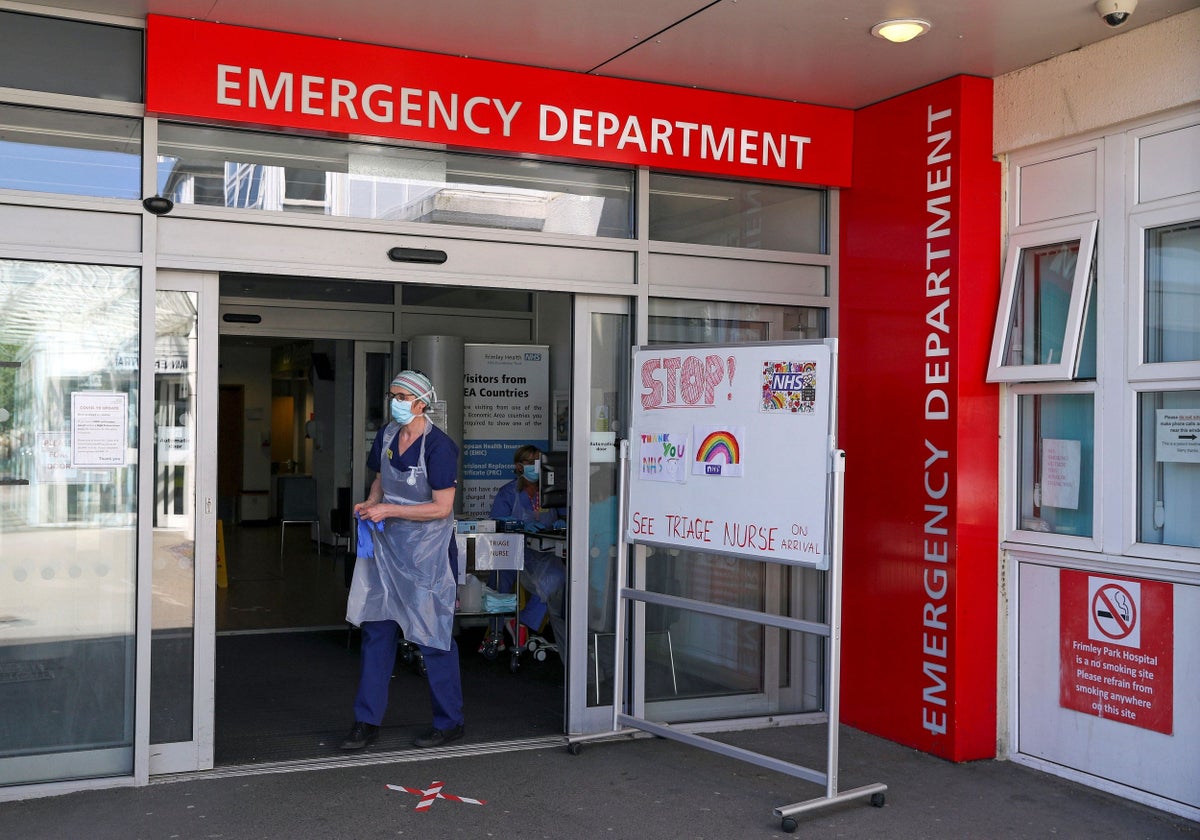
Hundreds of children suffering from mental health issues are attending A&E each day, with some waiting up to five days in emergency departments,The Independent can reveal.
Internal NHS data leaked to The Independent, shows the number of young patients waiting more than 12 hours from arrival has also more than doubled in the last year.
A national survey of senior A&E doctors by the Royal College of Emergency Medicine (RCEM) found in some areas children’s mental health services have worsened in the last three years, while the majority of respondents warned there were no children’s crisis services open after 5pm.
One NHS trust chief executive has warned his hospital’s A&Es have seen a “real surge” in both attendances of people with severe mental health issues and a sharp increase in long waits in recent months.
NHS England has set a benchmark for children across the country to have access to 24/7 crisis services by 2023.
However, the survey of nearly 100 A&E doctors by the RCEM found that just 20 per cent said they had a 24/7 service in their area.
Half of the doctors reported children’s mental health services in their area were “poor or awful”, while two thirds said children were waiting over 24 hours for a bed in A&E, with some reporting waits of up to five days.
One parent, Lee Pickwell, told The Independent his daughter was admitted to paediatric wards several times and stayed days in an emergency “section 136” unit while she waited more than two months for a mental health bed.
Internal NHS data obtained by The Independent shows anywhere between 900 and 1,500 children attend A&E for mental health issues across England each week.
Of those, between 50 and 100 children spend more than 12 hours in A&E from arrival.
NHS data shows around 6,000 adults present at A&E each week for mental health reasons. Around one in 12 adult patients wait more than 12 hours after they arrive.
During a board meeting on Monday, Matthew Trainer, chief executive for Barking, Havering and Redbridge NHS Trust said there had been a “real surge” in demand at A&E for those experiencing a mental health crisis.
From January to June, the trust has seen the overall number of people in its emergency department (ED) for 36 hours decrease, but a “sharp” increase in people with severe mental illness waiting this long.
More than half of those attending the ED due to mental illness had to wait more than 12 hours and 10 per cent more than 36 hours, he said.
He said: “We recently had a woman with learning disabilities who was in the emergency department at King George for more than 300 hours and we also had a child who we admitted to the paediatric ward at Queen’s in the end, and she was with us for 26 days before she could be transferred to an appropriate care unit. And in that time, we had to close three other paeds beds so we could care for that person in the right environment.”
In these cases, the patients were not waiting for mental health beds but social care placements.
‘Unacceptably’ long waits
Dr Mark Buchanan, RCEM’s lead for children’s mental health, told The Independent that despite improvements, children’s mental health services still fall short of what is needed.
Dr Buchanan said: “I’ve seen children who have been not seen by Child and Adolescent Mental Health Services (CAMHS), who been refused the referrals, despite the fact that the mum and dad were taking it in turns to sleep outside their bedroom door because they were scared that they’d run away and do some harm.”
He warned that children were missing school due to mental health crises, which is harming them in the long term.
However, Dr Buchanan added: “It’s important to know that everyone is trying their hardest, it’s really about a deficiency in beds, in staffing numbers, other places for children to be able to be seen in crisis or before they reach that crisis.”
The RCEM’s report said: “There are still unacceptably long waits for assessment in many departments and shockingly long waits for mental health beds. RCEM acknowledges that more funding has been assigned to CAMHS services and, in many cases, the rate-limiting step to improving services has been the difficulty in recruiting specialists. Add to this the increasing numbers of [children and young people] with mental health problems during the pandemic, more needs to be done to meet this group’s needs.”
Although long waits for children are often driven by delays in admissions to CAMHS beds, recent research has suggested inpatient stays can have negative impacts on children with mental health illness.
Olly Parker, head of external affairs at YoungMinds, said responding to the figures obtained by The Independent that they showed the country is in an “unprecedented” situation.
He said: “There can be no clearer evidence that this is unsustainable. Many young people who struggle with their mental health still find it hard to get help until they hit crisis point. Facing a long wait or not meeting the threshold for treatment can have devastating consequences, with problems further escalating.”
Mr Parker added for patients at crisis point, often at their most vulnerable, A&E can be the last place a young person wants to be and waiting several hours can make people worse.
‘Like a prison’
Lee Pickwell, from Lincolnshire, told The Independent his daughter, who has complex post-traumatic stress disorder, was left waiting for more than two months for an inpatient bed earlier this year.
Throughout her time waiting she suffered several crises, resulting in admissions to general hospital wards.
During one incident, Mr Pickwell said NHS authorities planned to keep her in a section 136 unit, usually used for patients brought into hospital under police authority, until a bed had become available. She was in there for two days before her parents were able to take her out.
Mr Pickwell said: “It was like a holding cell basically, a big room with just the bed in there. There’s a toilet and a shower, but there’s no door on the toilet. There are mirrors and cameras all around it’s basically like a prison.
“She was just refusing to eat, while she was there for two days, or drink and so her blood sugar dropped. They kept checking but they wouldn’t take her onto a children’s ward as they said there’s no bed, so they just kept checking through the night.”
An NHS spokesperson said the pandemic has had an impact on mental health nationally, with record numbers of children seeking support and near record levels of A&E attendance.
They added that the NHS has “fast-tracked” the introduction of 24/7 crisis lines, rolled out home-treatment services for children, and offered 2.4 million children support at school.







